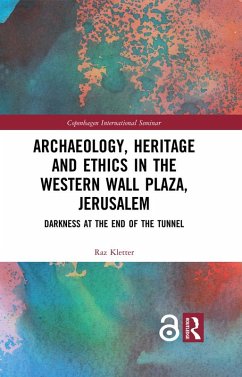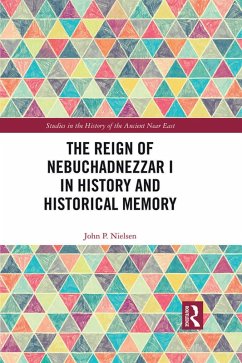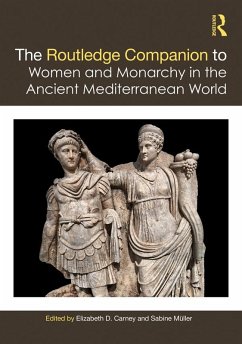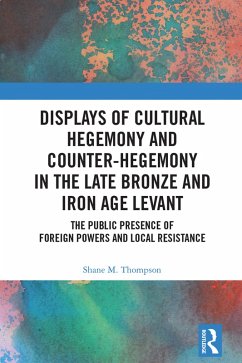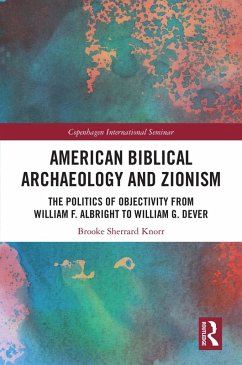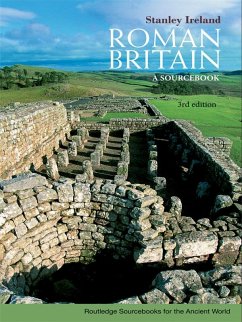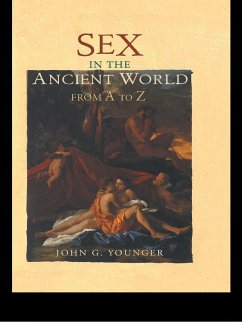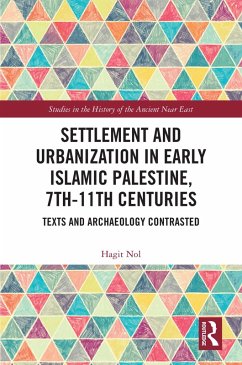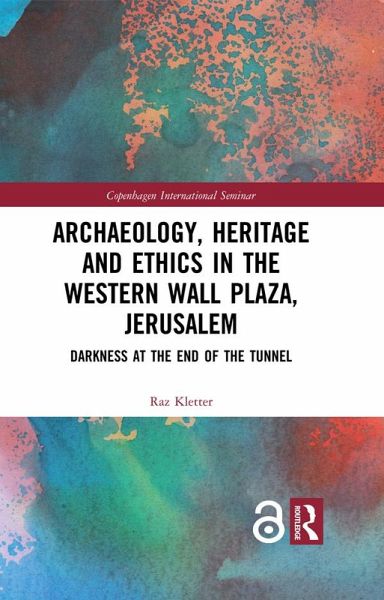
Archaeology, Heritage and Ethics in the Western Wall Plaza, Jerusalem (eBook, PDF)
Darkness at the End of the Tunnel
Versandkostenfrei!
Sofort per Download lieferbar
0,00 €
inkl. MwSt.
Weitere Ausgaben:

PAYBACK Punkte
0 °P sammeln!
This volume is a critical study of recent archaeology in the Western Wall Plaza area, Jerusalem. Considered one of the holiest places on Earth for Jews and Muslims, it is also a place of controversy, where the State marks 'our' remains for preservation and adoration and 'theirs' for silencing.Based on thousands of documents from the Israel Antiquities Authority and other sources, such as protocols of planning committees, readers can explore for the first time this archaeological 'heart of darkness' in East Jerusalem. The book follows a series of unique discoveries, reviewing the approval and e...
This volume is a critical study of recent archaeology in the Western Wall Plaza area, Jerusalem. Considered one of the holiest places on Earth for Jews and Muslims, it is also a place of controversy, where the State marks 'our' remains for preservation and adoration and 'theirs' for silencing.
Based on thousands of documents from the Israel Antiquities Authority and other sources, such as protocols of planning committees, readers can explore for the first time this archaeological 'heart of darkness' in East Jerusalem. The book follows a series of unique discoveries, reviewing the approval and execution of development plans and excavations, and the use of the areas once excavation has finished. Who decides what and how to excavate, what to preserve - or 'remove'? Who pays for the archaeology, for what aims? The professional, scientific archaeology of the past happens now: it modifies the present and is modified by it. This book 'excavates' the archaeology of East Jerusalem to reveal its social and political contexts, power structures and ethics.
Readers interested in the history, archaeology and politics of the Israeli-Palestinian conflict will find this book useful, as well as scholars and students of the history and ethics of Archaeology, Jerusalem, conservation, nationalism, and heritage.
Based on thousands of documents from the Israel Antiquities Authority and other sources, such as protocols of planning committees, readers can explore for the first time this archaeological 'heart of darkness' in East Jerusalem. The book follows a series of unique discoveries, reviewing the approval and execution of development plans and excavations, and the use of the areas once excavation has finished. Who decides what and how to excavate, what to preserve - or 'remove'? Who pays for the archaeology, for what aims? The professional, scientific archaeology of the past happens now: it modifies the present and is modified by it. This book 'excavates' the archaeology of East Jerusalem to reveal its social and political contexts, power structures and ethics.
Readers interested in the history, archaeology and politics of the Israeli-Palestinian conflict will find this book useful, as well as scholars and students of the history and ethics of Archaeology, Jerusalem, conservation, nationalism, and heritage.
Dieser Download kann aus rechtlichen Gründen nur mit Rechnungsadresse in A, B, BG, CY, CZ, D, DK, EW, E, FIN, F, GR, HR, H, IRL, I, LT, L, LR, M, NL, PL, P, R, S, SLO, SK ausgeliefert werden.




